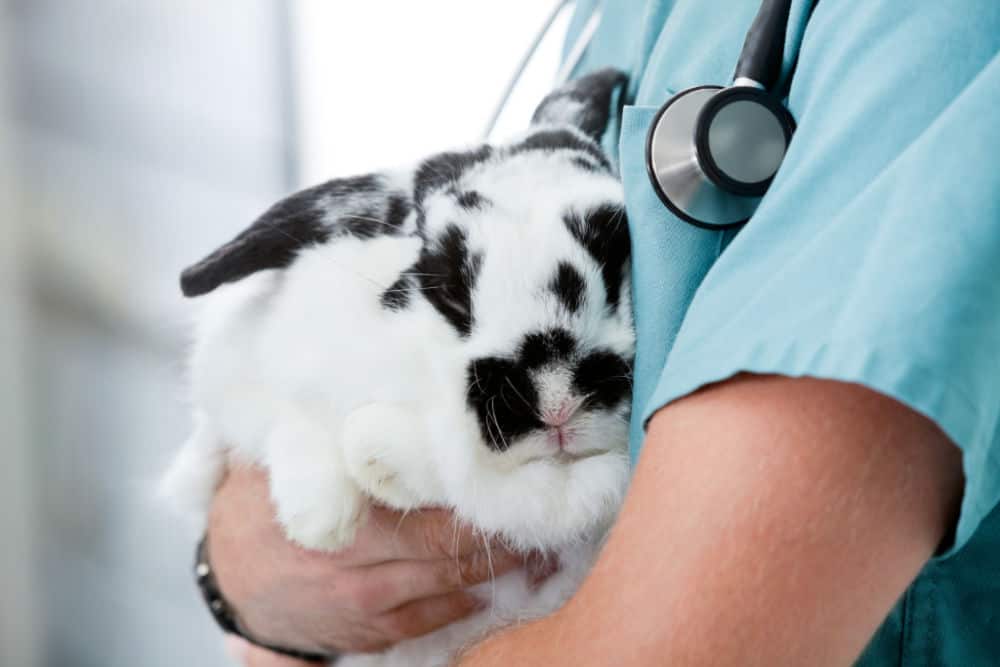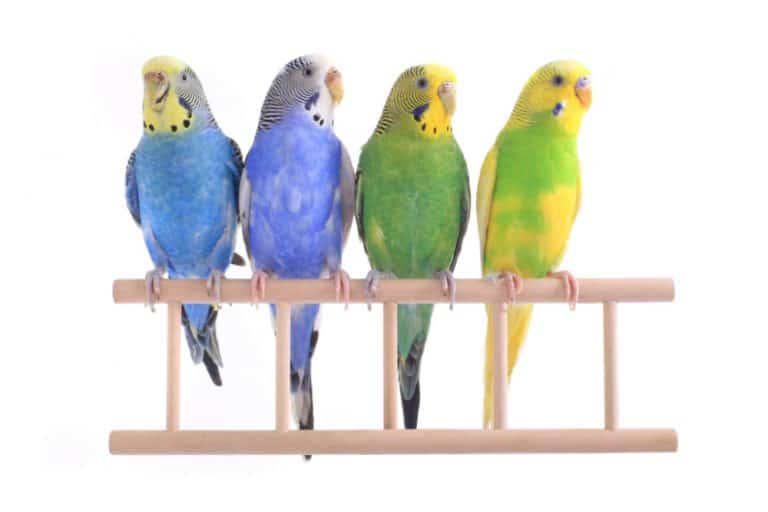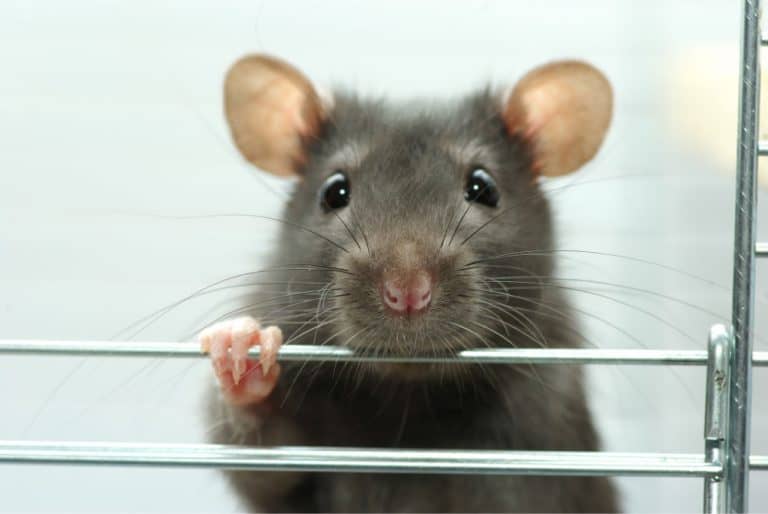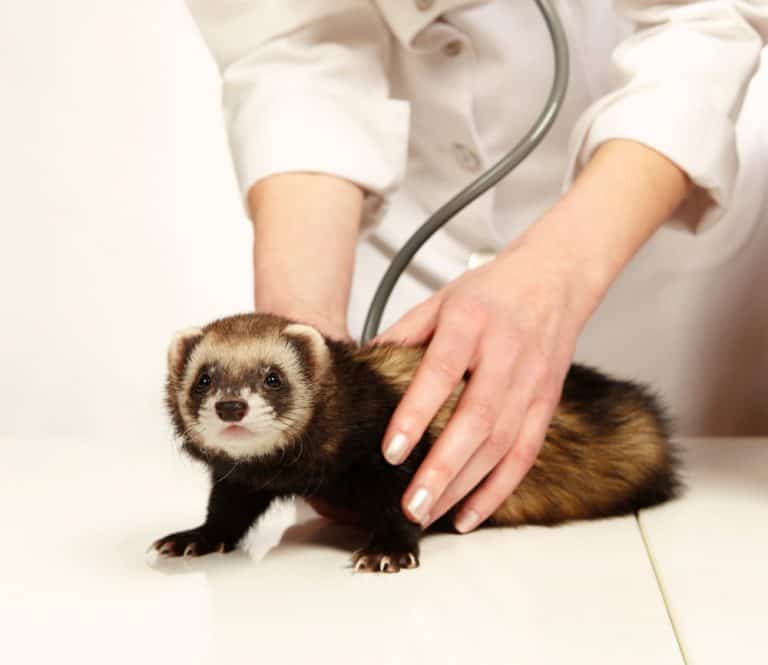How To Help A Rabbit Gain Weight Quickly And Safely
A sick bunny isn’t a happy bunny. And one of the biggest concerns after an illness is weight loss. If your rabbit loses too much weight, it can be difficult to recover fully. Weight gain is a delicate process. And if not done correctly, it can cause more problems. Today we are going to discuss how to help a rabbit gain weight quickly and safely.
**Disclaimer: We are not licensed veterinarians. This article is not to diagnose or treat any illness. If you suspect that your rabbit is sick, you should seek professional medical help. Some of these treatments can cause other issues, such as diarrhea. Talk to your vet before any home treatments.**
Reasons For Needing Weight Gain
Before starting a weight-gaining regimen, you need to identify the problem. Trying to help your rabbit gain weight without fixing the underlying problem is just a bandaid. You aren’t fixing the problem but masking all symptoms. If you recognize weight loss in your rabbit, you should first seek medical help. Here are a few of the most common reasons for your rabbit to gain weight.
Illnesses: Most rabbits stop eating when they are sick. It doesn’t matter if it was a bacterial infection or something minor. Some of the most common illnesses that cause weight loss are cancer, arthritis, liver failure, and respiratory infections. But they aren’t limited to just these few. If your rabbit has lost a few ounces during their most recent illness, you might look for ways to gain it back.
Rescue Rabbits: If you recently rescued a rabbit, they might have gone through a lot. Some of them are stressed by the process and lose a little weight. Some of them might have come to you malnourished and need to add a little weight.
Dental Problems: When rabbits have dental issues, they often stop eating. And we all know how difficult it is to resolve dental diseases. In most cases, your rabbit could stand to gain weight after this traumatic experience.
Stress: Environmental factors could also cause stress on your rabbit. Whether your house has experienced a significant change or elements that are out of your control. Most of these stress factors will make your rabbit lose his appetite, and sometimes even G.I. stasis.
Parasites: If your rabbit is losing weight but eating regularly, parasites might be the cause. After you have taken care of the problem, you can start a weight-gaining regimen.
Age: Sometimes, in old age, our rabbits start to lose interest in eating. They begin to lose weight and become at risk of illness. If this sounds like your rabbit, gaining weight will keep their energy up and immune systems running.
Signs That Your Rabbit Is Under Weight
For rabbits undergoing treatment by a vet, your vet will let you know if they are underweight. But if you are treating your rabbit at home, you will need to know signs that your rabbit is skinny. Below we have some of the most common symptoms that your rabbit is experiencing some issues.
- Dull or thinning coat
- Prominent hip bones and spine
- Sunken stomach
- Lethargic
- Small, deformed, and dry poop
- Hunching over in pain, usually accompanied by tooth grinding
If you notice any of these signs, it is best to take your rabbit to the vet. Curing the underlying issue is the first step. Then you can use these tips to put a little chunk to your rabbit. If you don’t address the situation at its source, it could be impossible for your rabbit to gain weight.
How To Help A Rabbit Gain Weight
Here are the best ways to help a thin rabbit gain weight. You should always consult your vet before trying any of these. Even though all of these treatments are safe, they aren’t for every recovery plan.
Free Feeding Pellets
One of the best ways to help your rabbit gain weight is to free feed. Most of us measure out pelleted food to prevent an overweight rabbit. But when your rabbit is feeling unwell, you should never restrict food.
Giving your rabbit plenty of high-calorie pellets is a great way to gain weight. But you will need to take caution with this method. Most rabbits get used to having more pellets and need weaning once they gain the weight back.
Baby Bunny Pellets
Mixing your adult rabbit food with baby bunny pellets is a great way to add calories to your rabbit’s diet. Young rabbit food is high in protein and calories to support their rapid growth. Mixing a small amount of this food into their pellets helps your rabbit gain weight quickly.
But you also need to use caution with this as well. Rabbits can gain too much weight when eating baby food. Small amounts and weaning them off is the best route to take.
Alfalfa
Timothy hay should always be available. But if you want to add a few more calories, adding alfalfa is a great option. Mixing your timothy hay with 20% alfalfa, your rabbit will look better in no time.
Alfalfa is commonly used to help most small animals gain weight because it is high in protein. Your rabbits will love the treat, and it can entice them to eat more.
Rolled Oates
Old-fashioned rolled oats are an excellent fiber source. Mixing a teaspoon of rolled oats with water makes the perfect calorie paste your rabbit need to gain weight. Rolled oats are especially useful for rabbits that lost weight due to dental issues.
The soft paste is easy to digest and easy on sensitive teeth. It’s just enough to get the digestion going after long periods of no food. And once your rabbit starts eating on his own, it is a fantastic source of extra calories for weight gain.
Critical Care
Critical Care is a great supplemental feeding powder. It’s not only delicious, but it’s also packed with fiber and nutrients. Most vets will prescribe Critical Care for animals that have stopped eating. But it’s a tool that all pet owners should have in their first aid kits. Your rabbit will feel like a million dollars with this superfood.
Apple Juice Hay
Sometimes your rabbit will refuse any food you offer it. Even the incredible alfalfa hay is hard for rabbits to eat. In these cases, you need apple juice hay. No, this isn’t some new form of grass. It’s hay that is sprayed with apple juice.
The best way to do this is by mixing half organic apple juice with water. Then lightly spray your hay mixture and let it dry. Rabbits don’t particularly like wet hay, so drying will remove the moisture without removing the taste. Rabbits can’t resist the taste of apples and surely will eat the fattening alfalfa hay.
Banana Baby Food
Baby food isn’t just for human babies. It’s also delicious for our fur babies. Bananas are a high-calorie food that rabbits love. In normal circumstances, bananas are very fattening and only used as treats. But when your rabbit is malnourished, they make an incredible cheap supplement.
Feeding a tablespoon or two of banana daily until your rabbit gains weight is an excellent idea. But when using this trick, keep a watch on their poop. Bananas can also be constipating to a rabbit that’s not getting enough fiber. If you notice hard feces, discontinue use.
Black Oil Sunflower Seeds
Everyone knows that black oil sunflower seeds are high in fat and protein. Not to mention they are the perfect addition to any pelleted diet to mix in calories. Giving your rabbit ¼ cup black oil sunflower seeds is ideal if you wonder how to help a rabbit gain weight.
You will want to start slow at first. Begin by giving only one tablespoon at a time to watch for upset stomachs. You can mix this directly in their pellets or put them in a separate bowl. Your rabbit will love them and put on healthy fat soon.
Calf Manna
Contrary to what the name suggests, Calf Manna isn’t just for calves. Farm animals of all types love this nutritious supplement. This feed is specially designed for animals that need extra support. Whether your pet is stress or recovering from an illness, Calf Manna is what your rabbit needs most.
You will want to mix Calf Manna into your rabbit’s usual pelleted diet. Slowly adding Calf Manna until you have ½ rabbit pellets, and ½ Manna is the best ratio for rabbits who need to gain a lot of weight. If your rabbit isn’t severely underweight, you can still use Calf Manna, just in smaller quantities.
Readigrass
The best Readigrass is grown over the pond in Britain. This grass is more nutritious than regular hay and is high in fiber. Mixing Readigrass into your rabbit’s timothy hay is the perfect way to add more calories to their diet. And the best part is that it’s not empty calories. Readigrass is jam-packed with essential vitamins and protein to kick start your rabbit’s digestive system.
Canned Pumpkin
Pumpkin has impressive healing properties. If your rabbit has an upset stomach, it’s gentle on the system. If your rabbit isn’t eating, it can entice and start the recovery process. In the right doses, your rabbit will have a healthier and smooth running digestive system.
Giving a teaspoon or two of canned pumpkin is an excellent way for your rabbit to gain weight. Just remember to get a plain canned pumpkin. Not the type you use as a pie filling. The pie filling has added sugars that can damage your rabbit’s digestive systems more.
Beet Pulp
Rabbits go crazy over beet pulp. It is high in fiber and gives a boost of energy to your rabbit. This energy boost is especially beneficial to rabbits, which are a little sluggish from being sick. You can sprinkle beet pulp on their food or make it into a paste to syringe feed. Some owners even make beet pulp into cookies by adding alfalfa and water to make a dough. Any way you can give your rabbit beet pulp works fine.
Apples
Another high calorie and high carb fruit are apples. Fresh apple slices will boost your rabbit’s immune system and entice them to eat more. Once they get their appetite back, they will soon return to regular eating habits. And the best part about an apple slice snack is that you don’t have to worry about weaning your rabbit off of it. You can stop at any time, even if your rabbit might resent you for it.
Oxbow Digestive Support
Oxbow makes some of the best diets and support treats for pets of all kinds. And we love their Digestive Support cookies. If your rabbit has undergone some G.I. stasis, your rabbit will have difficulty getting back into regular eating habits. If you feed Oxbow Digestive cookies to your rabbit along with other high-calorie foods, she will feel better in no time.
These cookies are packed with some of the best nutrients to support a healthy digestive tract. These treats are high in protein, fat, and fiber, which are all of the things you need to help a rabbit gain weight.
Raw Almonds
Almonds are a healing nut in many ways. Almonds have been linked to pain relief, reducing swelling, and high in protein. Feeding your rabbit a few raw unsalted almonds a day is a great way to gain weight. You can provide these sliced or slivered to make them quickly eaten or chop them up for a rabbit that’s having a hard time eating. Once your rabbit regains his strength, these almonds will chunk up a thin rabbit quickly.
Bing Cherries
By now, most people know the fantastic benefits that bing cherries have on humans. But did you know that these benefits translate to rabbits as well? The sweet taste of bing cherries can get your rabbit eating again after several days of no luck. And they are incredibly healthy as well. Bing cherries are rich in antioxidants, nutrients, and minerals that are proven to speed up recovery. No matter what your rabbit was sick from, these cherries will get them feeling better in no time.
Oat Hay
Another nutritious hay is oat hay. You can give your rabbit oat hay just as you would alfalfa hay. Mixing small amounts into the timothy hay encourages eating and adds calories. Oat hay is irresistible and contains plenty of protein and fiber to gain healthy weight.
Just remember that this hay is a treat and not given all the time. Once your rabbit is up to par, you should decrease the amount of oat hay given. If you feed too much oat hay, your rabbit could get too much protein and cause other health issues.
Guava
Fresh guava is sweet, juicy, and tasty. It’s also a high calorie and high carb fruit perfect for weight gain. You can give your rabbit diced fresh guava to encourage eating and jump-start their metabolism. Some studies have even shown that guava can help regulate your digestive tract and promote healing.
High-Quality Rabbit Food
If it’s been a while since you’ve evaluated your rabbit’s diet, it might be time. All brands are not created equally. Your food should be a pelleted diet with no dried fruits or nuts. It should also be timothy hay-based and have about 13% protein. If your rabbit is getting more than 16% protein, it could cause weight loss and other health issues.
We prefer brands like Oxbow and Mazuri because they are a tried and true brand. Other brands like to change their formulas often, but these two are reliable. Breeders and owners all over the world love these breeds.
Don’t Restrict Exercise
Some people might think that if you restrict exercise, your rabbit will retain all calories eaten. But when you do this, you are inadvertently making your rabbit eat less—calories in equals calories out. So if your rabbit isn’t moving around enough, they will reduce their calories as well.
Instead, you should encourage as much activity as your bunny can handle. The more your rabbit moves, the more it will stimulate their appetite. Once they’re eating well, you can supply some of the healthy, fattening foods mentioned above.
No Leafy Greens
Lettuce and other leafy greens are low in nutritional value and high in moisture. If you are trying to get your rabbit to gain weight, cutting back on these foods is best. Feeding empty calories during this time aren’t healthy for your rabbit and could cause more weight loss.
Instead, you should feed more calorie-rich vegetables like carrots and parsnip. Another benefit is that it could promote your rabbit to eat more hay when you cut down on these greens. And when that hay is rich in protein, like alfalfa, your rabbit will gain plenty.
Reglan
As a last result, you might want to talk to your vet about Reglan. Reglan is a prescription often used to promote a healthy appetite. Your vet might consider this medication if your rabbit has gone long periods of not eating or drinking. But it’s not suitable for every case, so you don’t want to attempt to use it without a vet prescription. A reputable rabbit vet will know the best way to administer this medication.
Before Starting Treatments
Using the treatments above are fantastic ways to help your rabbit gain weight quickly and safely. But before you start feeding your rabbit a bunch of nutrient-rich foods, there are a few tasks you should do first.
#1 Identify A Healthy Weight
Before trying to make your rabbit gain weight, you need to know a healthy weight. Since there are over 300 breeds of rabbits, the size of each varies differently. Knowing exactly how much your rabbit needs to gain helps you decide what type of regiment to use. If your rabbit only needs to gain a little bit, you don’t want to use several treatment options.
But if your rabbit is severely underweight, it should always be done under vet guidance. Gaining too much too quickly could cause kidney and liver disease in emaciated rabbits. In severe cases, slow and steady wins the race.
#2 Get A Scale
Now that you know a healthy weight for your rabbit, you need something to track the journey. We recommend using a kitchen scale like the LEVIN Food Scale. This scale is large enough for most rabbit breeds and holds plenty of weight.
#3 Weigh Daily
Now that you have all your supplies, you should start by getting a beginning weight. We suggest keeping track of your rabbit’s weight daily along with progress pictures. The reason you want to weigh daily is to see if a treatment is working or not. Some people will say those daily weigh-ins are not needed and to do weekly instead. But here’s why you don’t want to do that.
In one week, a rabbit could gain too much weight. And once a rabbit is overweight, it can be hard to get them to lose it. On the opposite side of the spectrum, a rabbit can lose a fatal amount of weight in a week. But if you weigh your rabbit daily, you can see if the treatment is working.
#4 Adjust Slowly
When our babies are sick, we want to do anything to make them feel better. And it might make us attempt too many treatments at once. Most of these foods are healthy and are remarkable for weight gain. But if you try too many foods all at once, you could upset their stomachs further. But if you notice soft, wet poop, that is a sign that you have changed their diets too much.
The best way to use these natural foods is to choose one and slowly introduce them. Let’s say you are adding Calf Manna to your rabbit’s diet. First, start with only a teaspoon to not upset their stomach. Then add a little more every day until they are eating half pellets half Calf Manna.
If you want to add more fattening foods to your rabbit’s diet, do it slowly as well. Get them used to the first food option, and then add a high-calorie snack every few days. Using this method will help you see what treatments are working best for your rabbit as well.
How Fast Should Rabbits Gain Weight?
We know the title of this article is How To Help A Rabbit Gain Weight Quickly And Safely. But how quickly can a rabbit gain weight? But it might surprise you to know that they can’t gain weight as fast as we’d like.
The average amount a rabbit puts on after illness is 4 ounces. This is a steady and healthy weight gain for an adult rabbit. But if your rabbit is still young, they can gain up to 12 ounces safely in a week.
You don’t want to exceed these weight gains for many reasons. If your rabbit gains too much weight too fast, they are prone to:
- Kidney disease
- Heart disease
- Obesity
- And joint defects
My Rabbit Is Refusing All Food. What Should I Do?
If your rabbit is ill, they might refuse all food. It can be distressing when this happens, and the best option for this is to syringe feed. You can do this with many of the food options mentioned above. But you have to be gentle and patient for this to work. If your rabbit gets too stressed, it might make the process worse.
You can buy syringes at any drug store in the infant aisle. All you need to do is choose the food you would like to use. Most people choose a pelleted food and grind it into a fine powder or Critical Care. You can then mix this with water and feed small amounts three times a day.
Once your rabbit starts to get their energy back, offer them timothy hay to eat. After a few days of this, your rabbit should build their strength up and get their appetites back. If they don’t, however, it might be time to see the vet again.
What Do I Do If I Have A Bonded Pair?
Bonded pairs are a tricky subject. If they are away from their partners for too long, they get depressed and stop eating as well. But if your rabbit is contagious, your rabbits can’t stay together. The best advice we can give here is to seek the answer from your vet.
If one rabbit is sick with a contagious illness, the chances are pretty high that the other rabbits have it as well. In that case, close supervision is needed, but separation isn’t necessary. But on the off chance that only one rabbit is sick, separation is required.
Conclusion
The road to recovery can be long and tiresome. But with these tips on how to help a rabbit gain weight, your rabbit will be healthy in no time. Soon your rabbit will be up and hopping around like usual. You would never guess that at one point, they were sick.







